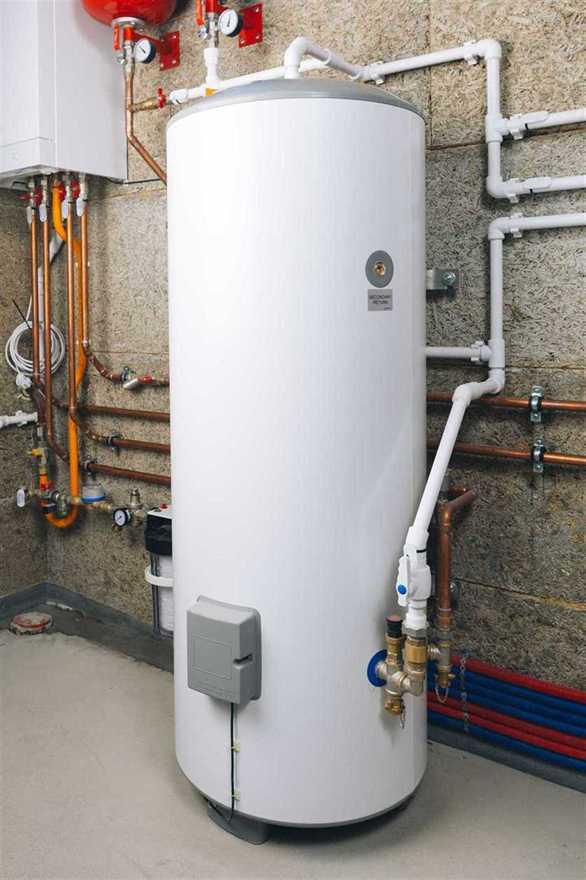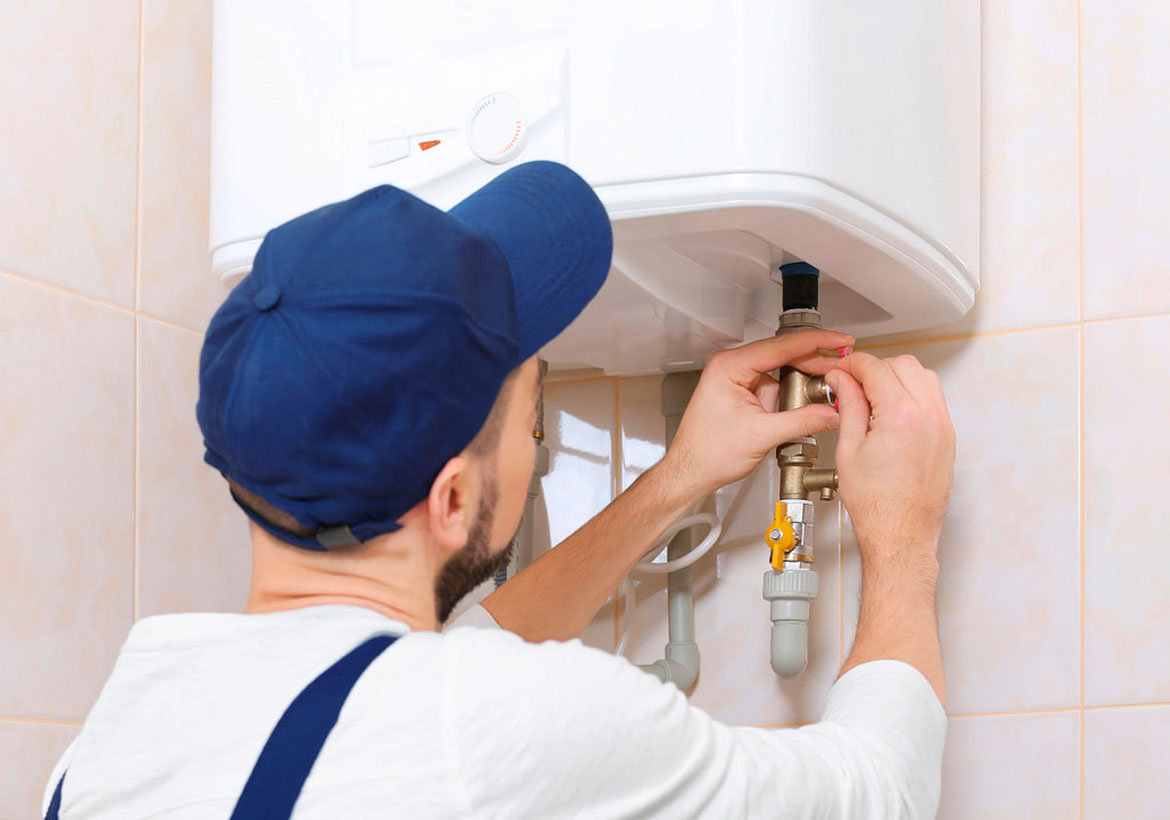Crucial Guidelines for Residential Property Owners Dealing with Faulty Water Heaters
Crucial Guidelines for Residential Property Owners Dealing with Faulty Water Heaters
Blog Article
Are you trying to find critical info concerning Broken Water Heaters?

Whether it is located in the basement or a different space, broken water heaters can create stress. A typical system holds 80 gallons, so an over night leak will bring about a flood. This results in major building damages with drenched wall surfaces and also floorings. Having no warm water supply is also troublesome. If you are handling these problems, bear in mind of the following:
Call the Plumber
After doing the first 2 security steps, you should call your plumber to come right away to take care of a fractured water heating unit. There are normally signs that your aging water heater has sediment buildup in the inside.
Don't wait on major flooding to call the plumber. Already, you will have to spend even more to restore your property. Rather, as quickly as you spot these indications, have actually a professional pertained to check your water heater storage tank. Usually, water heaters have a life expectancy of about 8 to 12 years. With normal assessment and maintenance, you can prolong its life.
Cut Off the Cold Water Supply
Cut off the tanks tap water supply from the source. This goes from your primary water line into the tank. When your tank is in good condition, the cold water stops filling up when the container is complete. Because it is leaking, the water will certainly proceed to flow. Close the shutoff found on top of the heating system. Rotate this clockwise to shut it off. If you can not discover it or reach it, you must switch off that major water system line outside your residential property.
Shut Down Source Of Power
Before calling the plumber, shut off a gas water heater by transforming the temperature level dial. This will certainly avoid electrocution, especially if there is a leak as water is a conductor. Typically, the heating element closes off when the water hits a certain temperature level.
Clean Up Residential property
After calling the plumber, file damage by making note and photos so you can declare your home owner's insurance. From there, start the instant clean-up. Secure any kind of vital valuables to avoid additional saturating. After that, eliminate any kind of standing water to avoid mold and also mildew development. Utilize that to drain pipes the water if you have a submersible water pump. Or else, the traditional bucket approach will additionally work. Attempt to mop out every little thing, including walls and also baseboards. Maintain them running to maintain air flowing if you have an electric fan as well as dehumidifier. This will help deter mold and mildew development.
Keep in mind, if you see any type of issues with your hot water heater, call the pros as soon as possible. You can not take this problem lightly due to the fact that a faulty thermostat can raise water temperature to a hazardously high degree, resulting in accidental burns. A broken heating unit stress safety valve can also create a surge. For finest results, get an annual check so your unit gets inspected, cleansed, drained pipes, as well as replenished, guaranteeing optimal efficiency.
After doing the initial two safety steps, you must call your plumber to come right away to take care of a ruptured water heating unit. Rather, as soon as you find these indicators, have an expert come to evaluate your water heater tank. Before calling the plumber, closed off a gas water heating system by turning the temperature dial. If you have a submersible water pump, utilize that to drain pipes the water. Bear in mind, if you see any issues with your water heater, call the pros right away.
Is My Water Heater Broken?
The Water Heater is Old
No appliance will last forever. This includes a home’s water heater. During its lifespan, residents are going to face a situation where a new water heater installation will be necessary. The biggest problem with this is that most people are not sure when their water heater expires. Not knowing this can lead to serious risks if the unit begins to act up due to old age.
Most makes and models of water heaters will last between eight and 10 years. While 10 years is the age when water heater replacement is highly recommended, the need to replace the unit may occur before this time or after. If the unit doesn’t show any symptoms of a problem, it is a good idea to replace it at the 10-year mark (from the manufacture date).
Some of the symptoms that indicate a new unit is needed include rusting, leaks, noises, and a failure to heat up the water. Also, note that not all units have a 10-year life expectancy. The main exception to this rule is that a gas unit will last for six to eight years.
Rusty Heater Inlet Valve or Water
While steel is the strongest material on earth, it does have a weakness – rust. If corrosion occurs on a steel surface, it will begin to spread and eat through the steel in certain areas. On water tanks and pipes that are made of steel, rust is a warning sign of an impending leak.
The issue for many is trying to figure out if the rust is coming from the water heater or the pipes that lead to the faucet. If rust is seen, it is a clear indication that water heater service from the professionals is needed.
If rusty water appears out of the faucets in the bathtub or sink, it likely means a rusty water heater. If there is rust near the water inlet or the pressure relief valve, rust has likely developed inside the tank. If tap water appears rusty, it may be an issue with the pipes.
Strange Sounds from the Water Heater
Are there strange sounds coming from the tank? As a water heater gets older, rumbling noises may develop and get louder and louder as the water in the tank heats up. In homes where large amounts of hot water are used, the issue is likely going to be even more obvious when more serious issues arise. If there is a strange or loud noise coming from the unit, it is probably because of sediment buildup. A good way to remedy this problem is by flushing the heater. If this does not work, then a new unit may need to be installed.
Leaks
As a water heater gets closer to the end of its useful life, there is a higher chance there will be water around the tank. If there is water, this usually means leaks are occurring. Based on where the unit is located in the home, a leak may result in serious property damage.
Leaks are usually caused by expansions in the metal tank. The expansions occur as time passes and as the inside body of the tank is exposed to multiple heating cycles per day. When a fracture forms, the gap will be slight enough to hold the water in; however, in more serious situations, this will not be the case. If the tank is idle, the water will not leak but when the metal expands during each heating system, small amounts of water will get through the gap.

Do you like more info about What Do You Do When Your Water Heater Bursts?? Make a review down the page. We'd be pleased to know your feelings about this write up. We hope that you come back again before long. Liked our piece of writing? Please share it. Help other people find it. We thank you for reading our article about Maintaining & Draining a Water Heater.
Tap leaks? Inform. Report this page